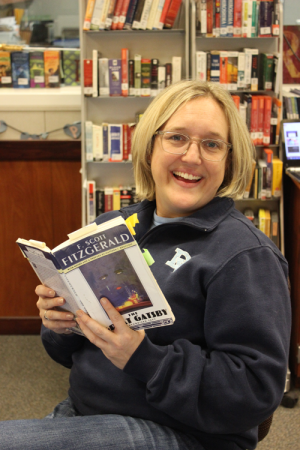Local radio stations fail to impress Dougherty students with overplayed music
January 10, 2017
Local radio stations miss the mark on the music that students actually enjoy, instead playing music for personal gain.
It’s something too many people have experienced: Turning on the radio and hearing that one song that you’ve heard about a million times. So you wait it out, hoping the next one is better. However, somehow, the next song is another song that you’ve heard about a million times. Local radio stations such as 99.7 and 94.9 often replay the same song over and over again.
“Every time I turn on the radio, it’s the same three songs. I rarely listen to the radio, but when I do, the music is still the same. It’s just not what I want to hear,” says senior Farial Jackman.
Recent polls confirm this, showing that 81.4 percent of the 162 students polled believe that the music in the radio is overplayed. Going further in depth, an overwhelming 55.4 percent of students believe that “Closer” by the Chainsmokers ft. Halsey, which is currently number 1 on the American Top 40 according the AT40.com, is overplayed. Following that is “Treat You Better” by Shawn Mendes at 14.8 percent, “Let Me Love You” by DJ Snake ft. Justin Bieber at 13.3 percent, “Heathens” by Twenty One Pilots at 9.4 percent, and lastly “Cold Water” by Major Lazer ft. Justin Bieber at 7 percent.
“They take the “Billboard Top 100” songs and play them — they’re good at first, and people like them, but they keep getting played over and over again because they are trying to feed into what they think people like, which makes people start to hate them,” claims Senior, Megan Burgess when asked how she believes a song becomes overplayed.
Though many students believe that certain songs are more overplayed than others, polls show that the approval ratings of these songs are about even. When asked which songs are DV student’s least favorite, 26 percent voted “Heathens” by Twenty One Pilots, 24.7 percent voted “Let Me Love You” by DJ Snake ft. Justin Bieber, 22.6 percent voted “Closer” by the Chainsmokers ft. Halsey, 21.2 percent voted “Treat You Better” by Shawn Mendes, and 5.5 percent voted “Cold Water” by Major Lazer ft. Justin Bieber.
Though the majority of students polled (81.4 percent) believe that the music on the radio is overplayed, when asked if the music on the radio was representative of the interests of DV students, 59.1 percent said that it still somewhat reflected student interest, with 32.2 percent saying “No” and 8.72 percent saying “Yes”.
“Our student population has a large variety of music tastes. Everybody likes some of the music on the radio, but the music that students actually love isn’t really the “Top 40”. It’s different for everyone,” says senior Michael Eschner.
So why do radio stations overuse certain songs? Overplayed music starts with independent promoters and “Pay-to-play.” This is when record companies use middlemen, or “Indies,” to go to radio stations and bribe them to play certain songs.
“Because it is illegal for record companies to directly pay radio stations to play their music, they bring in a middleman, the independent promoter, [that] will pay the station an annual payment of $75,000 to $100,000 per year (for medium-sized markets) for “promotional support.” This means the indie gives the station money, vacations or gifts in other forms,” says Lee Ann Obringer of HowStuffWorks entertainment.
Though this loophole is technically not illegal under the 1996 Telecommunications Act, which outlaws direct payment from record companies to radio stations, it completely skews the “Top 40”, with only 5 companies owning over 85 percent of the radio market, according to bombhiphop.com. Companies such as Sony, Universal, BMG, EMI and Time Warner are culprits of this, as well as artists such as Justin Bieber, Shawn Mendes, Beyonce and the Chainsmokers under their labels.
“I feel a little lied to, but I wouldn’t say I’m shocked,” says an anonymous student. “The music industry is more about money than actual art.”
The DV student body tends to reject the norms of popular music, and, though it may not be intentional, rejects the large companies that are controlling the radio stations that overplay the same few songs they’ve heard a million times.


